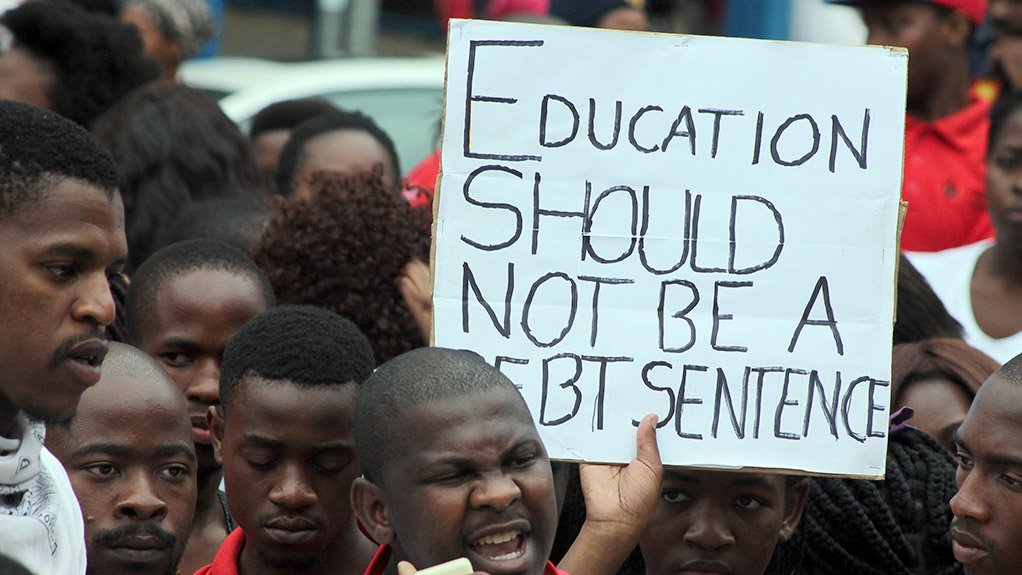Government has acknowledged concerns raised by various parts of the post-school community regarding free tertiary education, noted Finance Minister Pravin Gordhan in his Medium-Term Budget Policy Statement address on Wednesday.
The Fees Must Fall movement, comprising university students demanding free higher education, often through violent protests and vandalism, has placed the issue of education funding at the centre of policy debate.
Gordhan pointed out that major challenges facing students from low-income backgrounds included uncertainty about getting into technical vocational education and training colleges and universities, worries about registration fees and managing debt in the future, and whether or not government was in a position to provide further subsidies.
Students have been protesting government’s recommendation that universities could hike tuition fees by a maximum of 8% in 2017, after a 0% increase in 2016.
Last year, R5.6-billion was added to university subsidies to fund the 0% fee increase for the 2016 academic year.
Gordhan pointed out that government had received well-thought-out technical proposals to help tackle the challenges around free tertiary education, noting that the State had limited resources that needed to be complemented.
He noted that, in the next month, government would take stock of how these proposals could be combined with what it already had to find a shared solution.
Gordhan also emphasised how important it was that members of the movement were organised enough to start having technical discussions about the matters raised in the debates that have ensued following the Fees Must Fall protests.
“We require momentum that begins with initiatives from different and diverse sectors of society to look at issues together, in addition to solutions that are already in the pipeline,” he noted, adding that people needed access to education to produce quality outcomes and become a dynamic part of South Africa's economy.
While the Minister stressed that there was no room for violence during the fees negotiations, and that violence did not help the process, police were firing stun grenades to disperse students outside Parliament, where he delivered the speech.
According to News24, a mock coffin was set alight and thrown by the protesters over the heads of police officers. Police extinguished the blaze before firing at least ten stun grenades, forcing the students to scatter.
Police also used a water cannon at the Plein street entrance to Parliament. Students came back singing protest songs.
Meanwhile, Higher Education Minister Blade Nzimande, who spoke at a media briefing prior to Gordhan's speech, stated that challenges faced by the tertiary education sector would not be solved by paying attention only to universities.
“South Africa needs more colleges because the country lacks mid-level skills,” he said, adding that the country needed to focus on building a college sector that was three times bigger than the university sector.
Nzimande noted that money alone would not address the challenges faced in the sector and that an ongoing dialogue and improved throughput rate were crucial.
He said government had considered the challenges from all sides and concluded that the best approach would be to allow individual universities to determine the level of the increases that their institutions would require.
He emphasised the provision of free higher education for the poor, but not for everyone.
Meanwhile, universities have warned that another fee increase freeze in 2017 would damage their academic programmes.
“To save the 2016 academic year, we need to come together and be one dominant voice throughout the country,” Gordhan maintained.
EMAIL THIS ARTICLE SAVE THIS ARTICLE
To subscribe email subscriptions@creamermedia.co.za or click here
To advertise email advertising@creamermedia.co.za or click here











